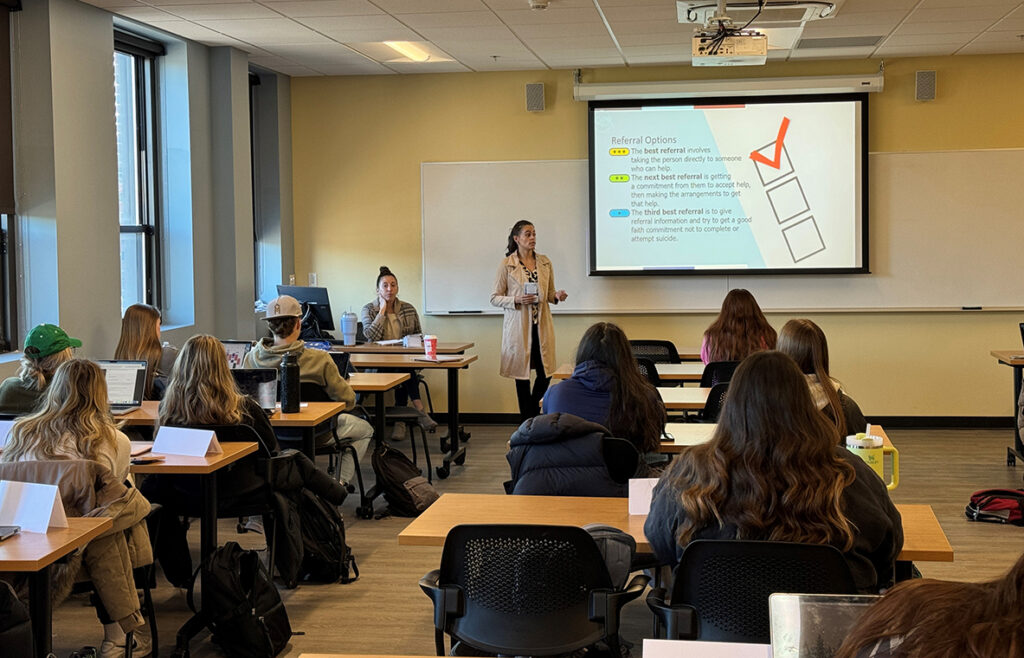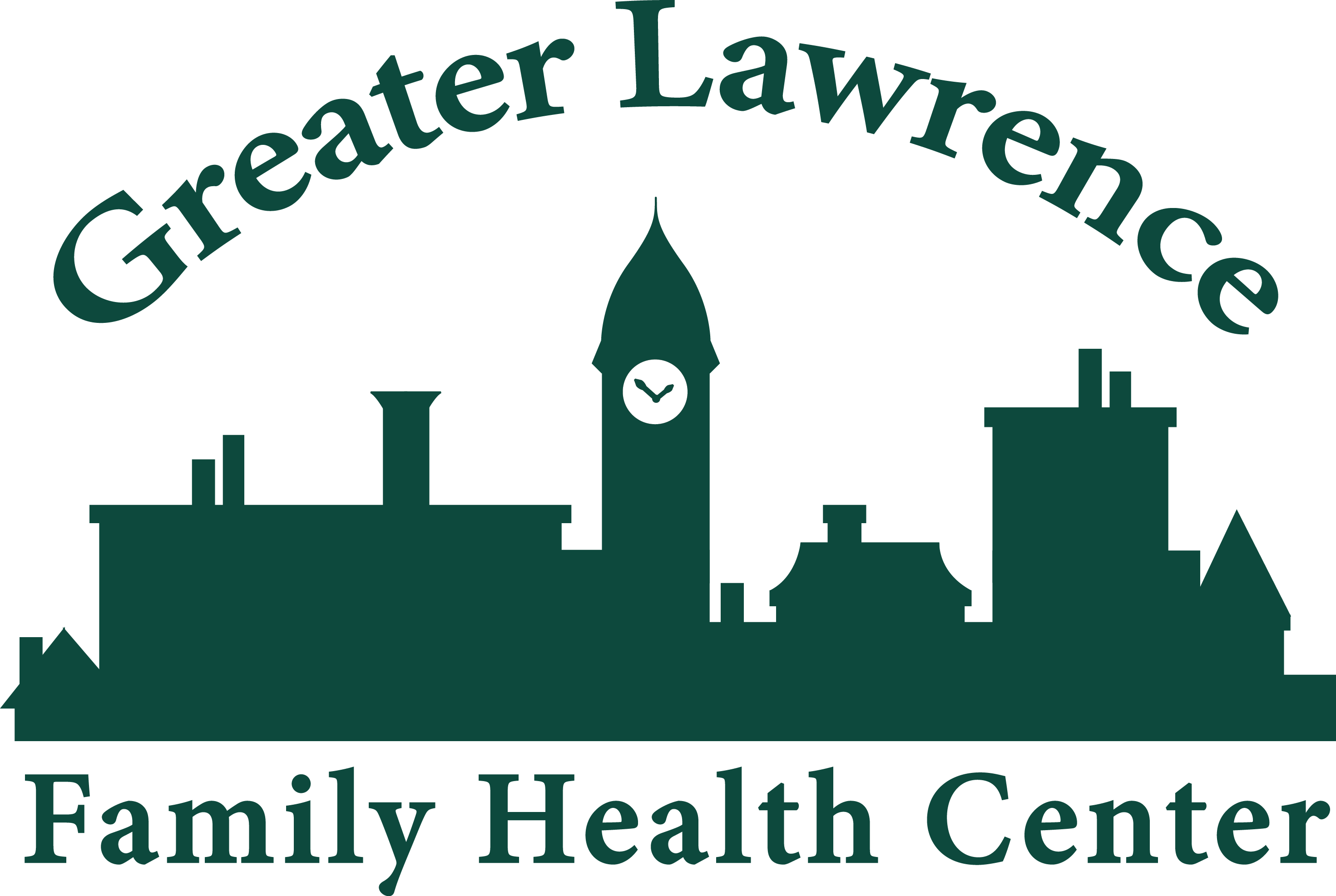
Lucia Rondon, Project Coordinator for GLFHC’s Recovery-Based Re-Entry Services Program, instructs Merrimack College students on the suicide prevention training program QPR (Question, Persuade and Refer).
GLFHC staff Ashley Hall, Director of the Merrimack Valley Area Health Education Center (AHEC), and Lucia Rondon, Project Coordinator for the Recovery-Based Re-Entry Services Program, partnered recently to offer QPR (Question, Persuade, Refer) Suicide Prevention training for this year’s AHEC Scholar students at Merrimack College in North Andover.
QPR stands for Question, Persuade, and Refer — three simple steps anyone can learn to help save a life from suicide. Just like CPR, QPR is an emergency response to someone in crisis and can save lives. QPR is the most widely taught gatekeeper training in the world and can be learned in as little as 60 minutes.
As people trained in CPR and the Heimlich maneuver help save thousands of lives each year, people trained in QPR learn how to recognize the warning signs of a suicide crisis and how to question, persuade, and refer someone to help. Each year thousands of individuals are saying, “Yes” to saving the life of a friend, colleague, sibling, or neighbor.
KEY COMPONENTS COVERED IN TRAINING:
- How to Question, Persuade and Refer someone who may be suicidal
- How to get help for yourself or learn more about preventing suicide
- The common causes of suicidal behavior
- The warning signs of suicide
- How to get help for someone in crisis
QPR Consist of the following three skills:
- Question … a person about suicide
- Persuade … someone to get help and
- Refer … someone to the appropriate resource
Please note: QPR is not a form of counseling or treatment. Rather is intended to offer hope through positive action. By learning QPR, people are able to recognize the warning signs, clues, and suicidal communications of those in trouble and gain skills to act vigorously to prevent a possible tragedy.
To learn more about AHEC Scholars, contact Ashley Hall at ashley.hall@glfhc.org. To learn more about QPR training and/or Recovery-Based Re-Entry Services, contact Lucia Rondon at lucia.rondon@glfhc.org.
